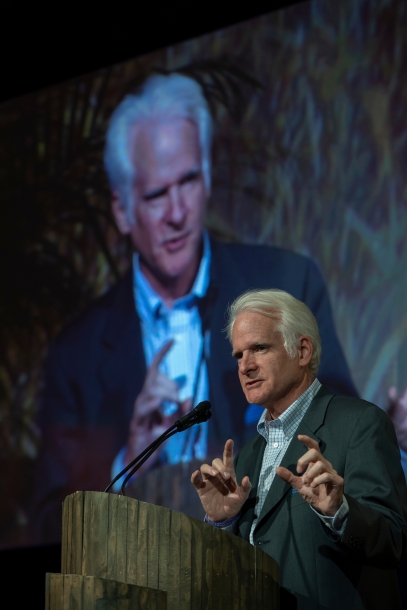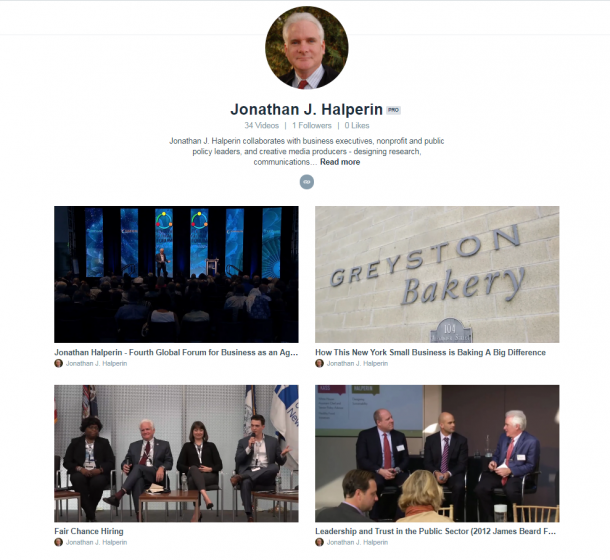You are here
Yes… But…
Rich and deep conversations are the hallmark of CERES conferences and this year in San Francisco was no exception, as CERES looks forward to its 25th anniversary in 2014. During the conference the newly released CERES report on fracking and water stress was covered in the New York Times. And General Motors signed the Climate Change declaration.
At the conference, Bill McKibben sounded yet another eloquent call for urgent action, warning the more than 500 participants that getting this done “over time” is no longer an option. On the global freshwater crisis, Peter Gleick from the Pacific Institute similarly observed that we have already passed the point of “peak water” and that unlike peak oil there are no substitutes for water.
Dan Hesse, CEO of Sprint, noted that measured along a very much shorter time-frame he has never been asked a question about sustainability on any of his quarterly earnings calls. At the other end of the spectrum Heidi Cullen, Chief Climatologist for Climate Central, reminded everyone that when the Dutch government vowed in the mid-20th century to protect its people from massive flooding, it opted not to prepare for a one in a hundred-year storm but rather adopted an 800-year time-horizon.
Although the redwood groves in Muir Woods, a mere 16 miles north of the conference site, are heirs to the tree-like ferns that appeared on earth 300 million years ago (the fossilized remains of which are today’s fossil fuels), who among us can think out anywhere close to 800 years?
But, on the other hand, who among us wants to predict when the companies we work for, or buy products from, will cease to exist? While no executive will admit to planning for the closure of his or her businesses, lack of longer-term thinking is essentially exactly that. If we are not implementing sustainability practices now -- managing resources such as water and soil health and biodiversity and atmospheric capacity for carbon absorption -- then we are failing in our fiduciary duties to preserve and generate value for stockholders and stakeholders.
Yes, but as much as we need to deepen the capacity of our species to think long-term we need to ‘scale’ urgently not ‘over-time.’ As David Blood from Generation Investment made very clear, longer-term business thinking about sustainability also yields near-term results: risk mitigation, cost reductions from greater environmental efficiencies, employee retention, and lower cost of capital.
But how do we scale, accelerating business change such that it is in synch with what science tells us are the outer limits of time and temperature before the fragile window closes that has allowed our species to develop over about 200,000 years – which is either a very long time for an earnings analyst or a mere blip in geologic time.
The answer often proposed, taking things to scale, may be right. But scale may not mean bigger. Scale might not mean building acres upon acres of solar panels far away from electricity users. Rather it might mean small solar clips we can attach to our cell phones. In America alone, with an estimated 328 million phones dispersed among a population of 314 million people this might not be such a small achievement. A different kind of scaling.
But could such a device be invented and marketed by a company if in its development it has the same RoI hurdle rates as all other corporate undertakings? Would investors and analysts on those quarterly earnings calls have the stomach for it? Seems like the Dutch did after the Great North Sea Flood of 1953. Was hurricane Sandy enough to galvanize Americans?
- jonathan.halperin's blog
- Log in or register to post comments

